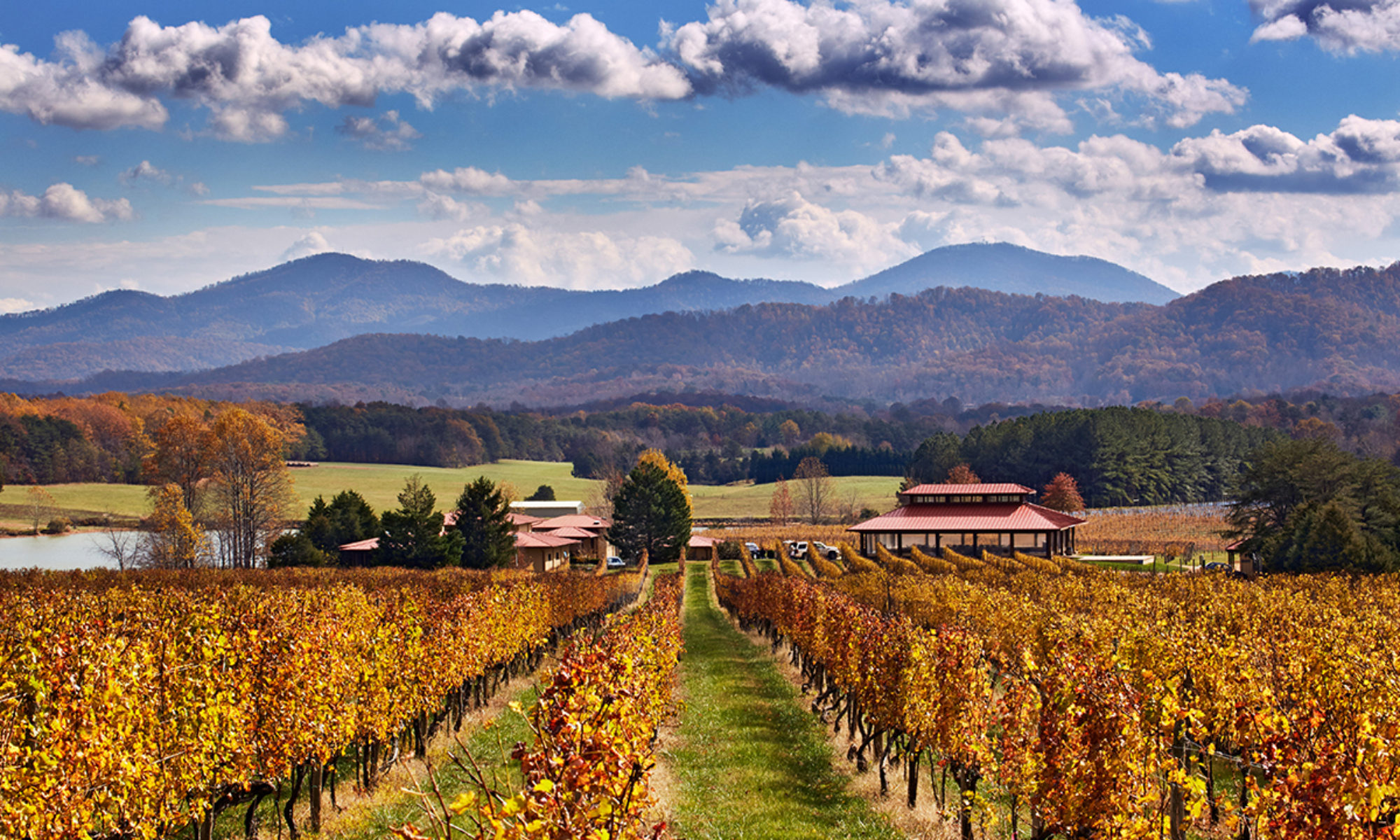Located in Louisa, about 50 minutes northwest of Richmond. This 103-acre farm vineyard was originally planted in 1999, with the winery established in 2011 as Cooper Vineyards by Geoffrey Cooper, who used to sponsor mini-Cooper rallies and “jazz and chocolate” festivals. Susan and David Drillock, retirees from New Jersey, bought the property in 2015, bringing with them two miniature donkeys, four Newfoundlands and six draft horses. The new name reflects that the then-Cooper was the 53rd winery established in Virginia. A new associated vineyard has been established in Albemarle County.
Wine. One of the Top 20 wineries in Virginia at the moment. Fifty-Third Winery was awarded two gold medals at the 2023 Virginia Governor’s Cup state-wide wine tasting competition, for their 2019 “Rock Ridge” red blend and 2021 Cabernet Franc. Their 2021 Viognier received a silver medal at the same event. The Rock Ridge and Viognier were also awarded gold medals at the 2022 Atlantic Seaboard Winery Association competition for 2022. At the 2022 Virginia Governor’s Cup, the winery was awarded five silver medals, for their 2019 Petit Verdot, Merlot, Chambourcin, “Romulus,” and “Two Springs,” the latter two both being red blends. The 2019 Vidal Blanc was awarded a gold medal at the 2021 Virginia Governor’s Cup, and the 2021 Albariño was awarded a silver medal at the 2022 Finger Lakes Wine Competition.
Setting. One star. Relatively small facility among rolling hills. High windows provide plenty of light and views. The winery’s tasting room earned a LEED Platinum certification for its commitment to “green” design and building technology.
Stories. Patrick Henry’s Home. Just over the county line in Hanover County, some 20 miles from Fifty-third Winery, is “Scotchtown,” the home of one of Virginia’s most famous sons, Patrick Henry. It is also a house with a star-crossed history. Scotchtown was built in 1719 the hot-tempered Colonel John Chiswell. Chiswell brought a company of Scots to upper Hanover County, filled with dreams of tobacco-planting fortunes and of creating a town. The foundation of a castle was laid nearby, and streets were mapped. The castle never got built, and an epidemic drove off most of the Scots who were supposed to populate the place. After killing a man in a tavern brawl and using some aristocratic pull to stay out of jail, Chiswell committed suicide in October 1766 — but not before inflaming rebellious passions in the countryside. A mob crashed his funeral, demanding to open the coffin and make sure he had not faked his death. A second lord of Scotchtown, who had ruled Virginia politics from the House of Burgesses, was posthumously found to have lined his pockets from the colony’s treasury. Years later, Patrick Henry acquired Scotchtown through intermediaries for 600 pounds in the equivalent of a sheriff’s sale. Nouveau riche and proud of it, he typified the meritocracy that would supplant British rule. A failed shopkeeper and tobacco farmer, he remade himself as a circuit-riding lawyer and talked his way up the rungs of success, venting rebellious thoughts that other patriots were unable — or unwilling — to say. The most famous of those statements was the line in his Stamp Act speech: “Give me liberty or give me death!” Henry urged independence, and was elected Virginia’s first Governor in 1775 after helping draft the original Virginia Constitution. He served five one-year terms, and was later again elected to two more terms as Governors in 1784. But while Patrick Henry gained fame and helped the new country move into its independence, Scotchtown was an unhappy place for his wife. Sarah Shelton, the daughter of a respectable farmer and tavern keeper, married Henry in 1754, when she was 16 and he was 18. Sallie, as she was known, ran the plantation while Patrick galloped between courthouses and political assemblies. She lost her reason — as folks put it back then — after the birth of her sixth child, Edward, around 1771. First there was melancholy. Then violence. At times she had to be restrained in a “strait-dress.” Folklore had it that her husband descended through a trap door to feed her. Having survived scandal and tragedy, the house at Scotchtown remains, and is one of the largest 18th Century homes to survive in the Americas. Today it is owned and managed by Preservation Virginia.
